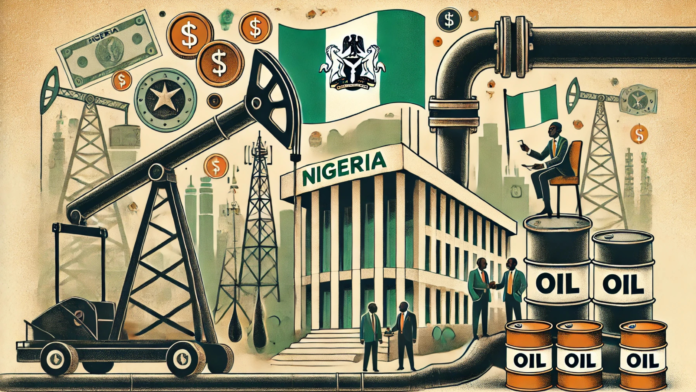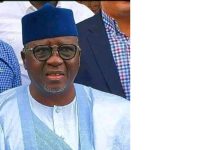Nigeria, often called the “Giant of Africa,” has one of the largest economies on the continent, largely fueled by its abundant oil resources. Since the discovery of oil in Oloibiri, Bayelsa State, in 1956, petroleum has played a dominant role in Nigeria’s economy, contributing significantly to the nation’s GDP, foreign exchange earnings, and government revenue. However, the heavy reliance on oil has profoundly influenced Nigeria’s political landscape, shaping policy decisions, governance practices, and the country’s socio-economic framework. While oil wealth has brought economic gains, it has also posed challenges, including corruption, economic dependency, and regional inequality. This article explores the influence of the oil economy on Nigeria’s political decisions and the resulting implications for governance and development.
Oil and the Nigerian Economy: An Overview
Nigeria is one of Africa’s leading oil producers and a key player in the global oil market. Oil accounts for approximately 90% of Nigeria’s foreign exchange earnings and over half of government revenues. This reliance on oil revenue has made the petroleum sector central to Nigeria’s economic stability and growth. However, this dependence has also created a “resource curse” effect, where the abundance of natural resources leads to economic, social, and political challenges rather than broad-based development.
The centrality of oil to Nigeria’s economic stability means that fluctuations in global oil prices directly impact government revenue, economic planning, and the country’s capacity to finance projects and services. As a result, Nigerian policymakers often prioritize oil interests, focusing political and economic strategies on sustaining oil production and ensuring favorable conditions for the oil sector. This focus on oil has led to a unique political economy, where decisions are frequently influenced by the dynamics of oil wealth.
How Oil Shapes Political Decisions in Nigeria
1.Centralization of Power and Revenue Control: Nigeria’s federal system theoretically shares power among the federal, state, and local governments. However, due to oil’s substantial contribution to national revenue, the federal government has retained significant control over oil resources. This centralized control has led to a concentration of power in Abuja, limiting state autonomy and creating dependencies on federal allocations. Political decisions at the federal level often prioritize maintaining control over oil revenues, leading to tensions with oil-producing regions that seek greater resource ownership and autonomy.
2.Political Patronage and Clientelism: The concentration of oil wealth has fueled a culture of political patronage, where resources are distributed as rewards to loyal supporters, allies, and interest groups. This system of clientelism impacts decision-making, as politicians often prioritize policies and projects that benefit their networks rather than address broader socio-economic needs. The wealth from oil has incentivized politicians to focus on short-term gains and personal enrichment, fostering a cycle of corruption that undermines governance and accountability.
3.Impact on Electoral Politics: Oil wealth has heavily influenced Nigeria’s electoral politics, with control over oil revenues and access to the national treasury often dictating electoral strategies and alliances. The financial power afforded by oil revenues makes political positions lucrative, fueling intense competition and a “do-or-die” approach to elections. Candidates often invest heavily in campaigns, with the expectation of recouping their investment through control over government contracts, oil subsidies, and public resources.
4.Foreign Policy and International Relations: Oil has shaped Nigeria’s foreign policy, as the country maintains relations with key oil-importing nations and multinational corporations involved in oil exploration and production. Nigeria’s political decisions often prioritize maintaining favorable relations with countries like the United States, China, and India, as well as organizations such as the Organization of Petroleum Exporting Countries (OPEC). Nigeria’s stance in international negotiations, trade agreements, and geopolitical alliances frequently reflects the interests of its oil sector.
5.Fiscal Policies and Budgeting Decisions: The Nigerian government’s budget is heavily dependent on oil revenue, with annual budget projections often based on oil price benchmarks. When global oil prices are high, government spending increases, and large-scale projects are initiated. Conversely, when prices fall, budget shortfalls occur, leading to cuts in public spending, borrowing, and reduced social services. This reliance on oil revenue for budgeting has made fiscal policy unpredictable and limits the government’s ability to invest sustainably in other sectors, such as agriculture, manufacturing, and technology.
6.Environmental and Regulatory Policies: Oil exploration has significant environmental implications, especially in the Niger Delta, where oil spills, gas flaring, and pollution have harmed ecosystems and affected local livelihoods. However, political decisions regarding environmental regulations are often influenced by the economic importance of oil. Environmental concerns are frequently downplayed or inadequately addressed to maintain production levels and appease multinational oil companies, leading to long-standing issues in oil-producing regions.
The Socio-Economic Impact of Oil-Driven Politics
1.Economic Diversification Challenges: Nigeria’s dependence on oil has hindered the development of other economic sectors. Despite abundant natural and human resources, Nigeria has not fully developed industries such as agriculture, mining, and manufacturing, which could create jobs, increase exports, and stabilize the economy. Efforts to diversify have often been deprioritized due to the ease and profitability of oil revenue, leaving the economy vulnerable to oil price shocks.
2.Regional Inequality and Agitation: Oil-producing regions, particularly the Niger Delta, have experienced significant environmental degradation, poverty, and underdevelopment. Despite contributing the majority of Nigeria’s revenue, these regions often receive minimal benefits from oil wealth, sparking resentment and calls for resource control. This sense of neglect has led to the rise of militant groups, such as the Niger Delta Avengers, who demand greater control over regional resources. The government’s response has included both military interventions and temporary amnesty programs, but long-term development and equity remain unresolved.
3.Social Services and Infrastructure: Despite the wealth generated from oil, Nigeria continues to face challenges in providing quality social services, such as education, healthcare, and infrastructure. Oil revenue is frequently allocated to sectors that benefit political elites, rather than investing in critical areas that improve quality of life for the general population. This misallocation of resources reflects the influence of oil wealth on decision-making, as political leaders prioritize policies that favor immediate wealth distribution over sustainable development.
4.Corruption and Governance Challenges: The oil economy has fueled corruption in Nigeria, with government officials often implicated in embezzlement, bribery, and other forms of malfeasance. The Nigerian National Petroleum Corporation (NNPC), for instance, has faced allegations of lacking transparency and accountability. Corruption limits the effectiveness of governance, undermines public trust, and hampers efforts to implement policies that benefit citizens. Anti-corruption agencies have made efforts to address this, but the oil sector remains susceptible to unethical practices due to its profitability and high stakes.
5.Insecurity and Armed Conflict: The lucrative nature of oil has fueled conflicts in oil-producing regions, with groups fighting for control over resources and compensations for environmental damage. Militant groups in the Niger Delta, for example, have targeted oil facilities and pipelines, disrupting production and costing the nation billions in lost revenue. Political decisions that fail to address the grievances of oil-producing communities often exacerbate these conflicts, creating a cycle of insecurity that hinders development.
Pathways for Reform and Sustainable Development
1.Economic Diversification: Reducing Nigeria’s reliance on oil requires concerted efforts to diversify the economy. Investing in sectors such as agriculture, manufacturing, tourism, and technology can reduce the impact of oil price fluctuations on the economy and create a more stable and balanced economic structure. Diversification would also generate jobs, improve export earnings, and increase resilience against global market shifts.
2.Resource Control and Regional Development: Implementing policies that grant greater resource control to oil-producing regions can help address grievances, foster equitable distribution, and reduce conflict. Programs that channel a portion of oil revenue directly into development projects for affected communities would help improve infrastructure, education, and healthcare in oil-producing states.
3.Transparency and Accountability in the Oil Sector: Strengthening anti-corruption measures and enforcing transparency in the oil sector would mitigate the misuse of oil revenue. Instituting public reporting requirements, audits, and oversight mechanisms for government agencies, especially the NNPC, would foster trust and ensure oil wealth is directed toward public welfare.
4.Environmental Protection and Sustainable Practices: Nigeria should prioritize implementing stricter environmental regulations to protect oil-producing regions. Setting limits on gas flaring, addressing oil spills, and mandating environmental rehabilitation programs would reduce ecological damage and promote sustainable practices in the oil sector.
5.Policy Reforms for Political Stability: Nigeria’s government must consider political reforms that reduce the influence of oil wealth on elections and governance. Policies that cap campaign spending, restrict the use of public funds for political activities, and enhance electoral transparency would help depoliticize oil wealth and create a more balanced political environment.
Conclusion
The influence of the oil economy on Nigeria’s political decisions is profound and far-reaching. While oil has provided substantial revenue, it has also created challenges that limit Nigeria’s economic potential, exacerbate regional inequalities, and contribute to political instability. For Nigeria to achieve sustainable growth and equitable development, policymakers must prioritize reforms that reduce dependency on oil, promote transparency, and address the needs of oil-producing communities. By diversifying the economy, implementing governance reforms, and improving environmental standards, Nigeria can harness its oil wealth to create a more prosperous and stable future for all citizens.




















